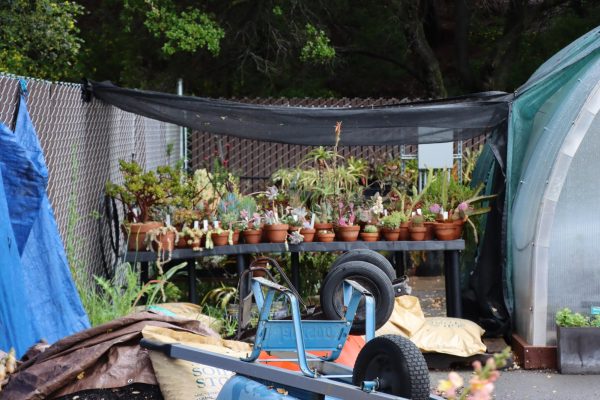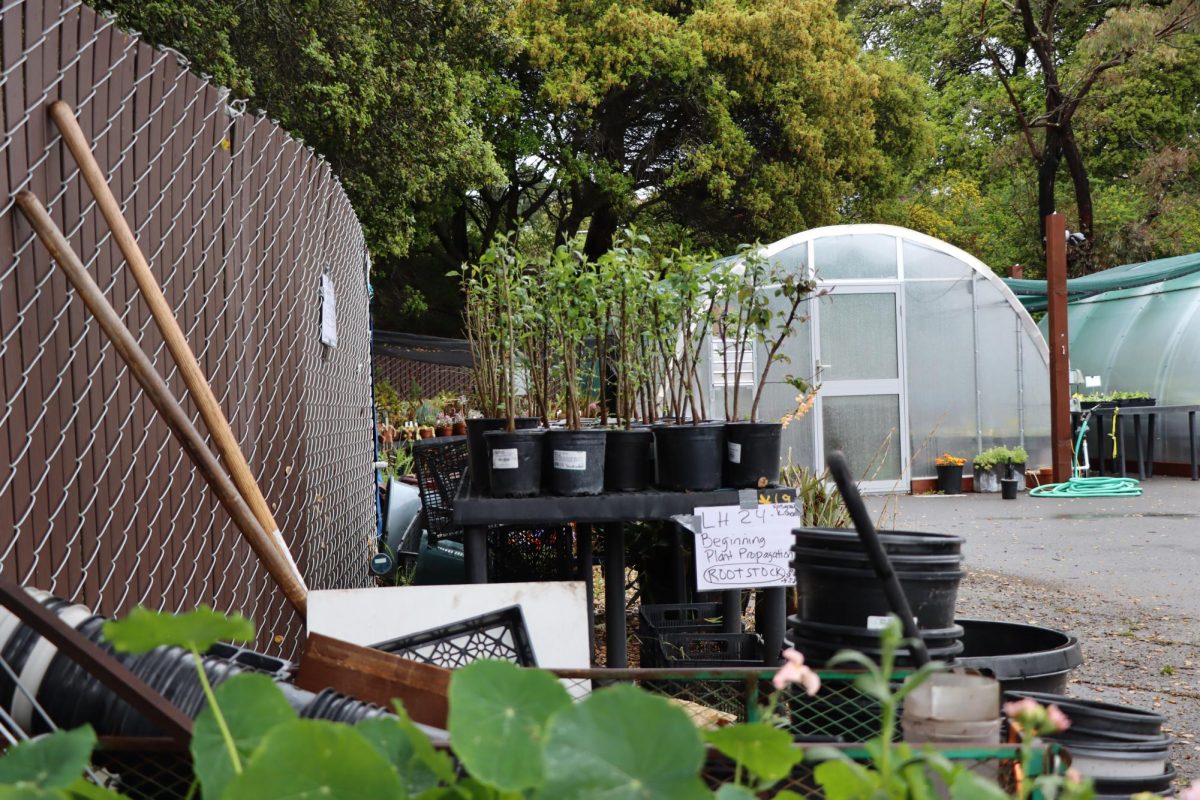Matthew Ford grows two strains of cannabis on the sunny patio of his Oakland condominium for his online horticulture class at Merritt College. It’s his first time taking a class on growing cannabis, and he didn’t know a lot about gardening before he enrolled.
But to get started, he told The Citizen, “you don’t need much.”
“You just need the specific pots that you’re going to be doing them in,” Ford said. “You might need some shears […] to keep the plants cleaned up. Maybe some shoveling stuff, gloves. And then your medium, your nutrients, things that you’re going to need to feed the plant.”
Ford’s teacher, Matthew Witemyre, is one of the educators behind Merritt College’s new Certificate of Achievement in Cannabis Horticulture, which is available starting this fall.
As the college’s Cannabis Career Pathways Coordinator and a former cannabis industry professional, Witemyre stressed that the curriculum is more rigorous than “sitting around and getting high”— it’s about training students for “jobs, jobs, jobs.”
The required courses take approximately one year to complete on a full-time basis, and can be covered by financial aid. A cannabis horticulture certificate from a private company like Oaksterdam University costs $983 at time of writing, for a one-year, online, asynchronous curriculum.
Witemyre said that when he submitted his original proposal to teach a fee-based weekend cannabis horticulture class, he was still a Nursery Management student at Merritt. He recalled being told the class would be illegal to teach without a permit.
Witemyre contacted the County of Alameda, the California Department of Cannabis Control, Oakland City Council, and cannabis-versed attorneys to inform his next move. Besides having to register the course with the County of Alameda Agriculture / Weights and Measures Department, Witemyre said he learned that “there is simply no permit [required] for what we’re doing.”
With the help of an attorney, Witemyre was able to demonstrate to Peralta’s governing board that funding a cannabis cultivation class would be federally legal under the 2018 Farm Bill, which exempts industrial hemp with negligible THC content from classification as a Schedule I drug.
Merritt’s Academic Senate subsequently approved a resolution calling legal cannabis as “the fastest-growing job-creating sector of the economy,” citing a 2021 Leafly Job Report showing that 23,707 cannabis jobs were added to the state economy the previous year.
Students won’t grow cannabis on campus as a part of the certificate— yet. The first in-person cannabis horticulture labs will be taught using “analogs” like peppers and tomatoes, Witemyre said, and emphasized that all courses required for the certification were developed from scratch to be cannabis specific.
“In a perfect world, it would be much better if we were using cannabis plants,” Witemyre admits, but adds that it’s “simply not true” that growing cannabis takes special skills.
“One of the overarching goals of this program is to show that cannabis is just like any other plant,” Witemyre said.
Merritt’s Horticulture department awaits the projected Fall 2025 completion of a new $24.6 million Landscape Horticulture Complex, which will help facilitate a transition to using real hemp plants. Until then, Witemyre says the department is “essentially homeless,” relegated to a group of bungalows on the edge of campus.

Even though his class is completely online and asynchronous, Ford was excited to hear about the Horticulture department’s new home. Working on his patio garden has only reinforced the value of having a proper space in which to grow plants.
“We definitely need the resources and a building dedicated to it,” Ford said.
Last year, Merritt College partnered with consulting firm Case 4 Cannabis (C4C) to create a new cannabis-specific workforce development program, building off of the Horticulture department’s existing offerings.
Oakland residents from “equity eligible” locales, as well as those previously incarcerated for cannabis-related crimes, who are over the age of 21 may qualify for C4C’s Cannabis Workforce and On-The-Job Training Initiative. Participants will first complete the newly created Cannabis Industry Career Exploration course through Merritt, then be placed into full-time paid internships with cannabis companies in Oakland, earning up to $21.28 per hour. The City of Oakland granted $1.2 million in funding to C4C’s initiative, which will support three cohorts of thirty interns.
“We believe in the power of leveraging a public institution to provide education at no cost to the intern,” Case 4 Cannabis Consulting Partner Xavier Nazario wrote in an email to The Citizen.
Witemyre hopes his students will see cannabis horticulture as a “gateway to gardening.” As for Ford, he’s finishing a Bachelor’s degree in Communications, but is “not opposed” to the idea of a job in the cannabis field and eager to learn more about horticulture through Merritt.
“Even though I’m going to be starting up at [CSU] East Bay,” Ford said, “I’m definitely going to still be taking classes at Merritt, whenever I can fit it into the schedule.”
Correction 4/24/24/ 6:16 PM: An earlier version of this article incorrectly stated that participants in C4C’s cannabis workforce initiative would need to complete a Certificate of Achievement in Cannabis Horticulture. According to Matthew Witemyre, the C4C program is separate from the certificate of achievement, and participants in the initiative will take an 8-week Cannabis Industry Career Exploration Course to be placed in paid internships.



























